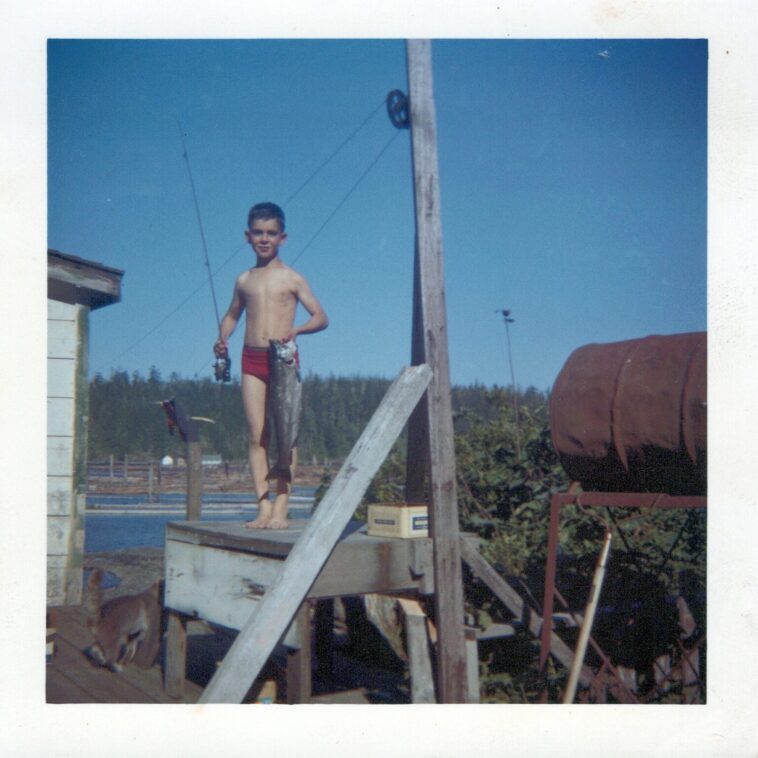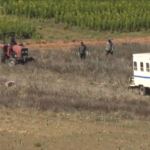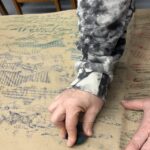A new book recounts the uniquely West Coast childhood of BC-based author Michel Drouin, who grew up roaming the wilderness of northern Vancouver Island. His memoir, Past the End of the Road: A North Island Boyhood, released by Harbour Publishing in April, is a nostalgic journey through the landscape of mid-century Port Hardy. The book spans from the 1950s to the 1970s as he narrates his own coming-of-age tale alongside a historical look at the growth of a coastal industry town.
Drouin has been writing about the province since high school when he penned a column for the North Island Gazette. Later in his life, while working in the fishing and logging industries, he was an assistant editor for the United Fishermen and Allied Workers Union newspaper, The Fisherman. Writing remained a constant passion for him, but it was only later in life that he found the inspiration to document his childhood experiences.
In our exclusive interview, Drouin reveals the idea for the memoir came after writing 4 or 5 unpublished fiction novels. “I finally decided, if I’m not having any luck with fiction, maybe I’ll try nonfiction because, for one thing, I won’t have to make anything up – or not much anyway,” he laughs.
After six months of writing his childhood recollections, he sent off a draft to Harbour Publishing, who were excited about his delving into the rich tapestry of his Island upbringing. A year later, his memoir was published.

During Drouin’s formative years, Port Hardy was a tight-knit community revolving around the logging industry on the traditional territory of the Kwakiutl First Nations. “It was a tiny, basically one-industry town,” he recalls. “Almost everybody worked for the company that was then called the Powell River Company,”
His parents raised him in a small home that sat between Fisherman’s Wharf and the Glen Lyon River. Drouin affectionately notes that in his childhood, he enjoyed a sense of freedom that is rare for children today.
“We just did what we wanted. We didn’t have television, and so we just entertained ourselves.”
Michel Drouin, BC-based author
“We were the beneficiaries of free-range child-rearing,” he says. “Our parents would just let us out the door, from about the age of four or five, usually playing on the beach or the older I got, the farther we went into the forest or out on boats,” he reminisces. “We just did what we wanted. We didn’t have television, and so we just entertained ourselves.”
“It was a wild and footloose kind of life,” he says. He remembers being “whacked with an axe, shot between the eyes with a BB gun, and I lit myself on fire,” but he and his friends all survived, he says, with a laugh.
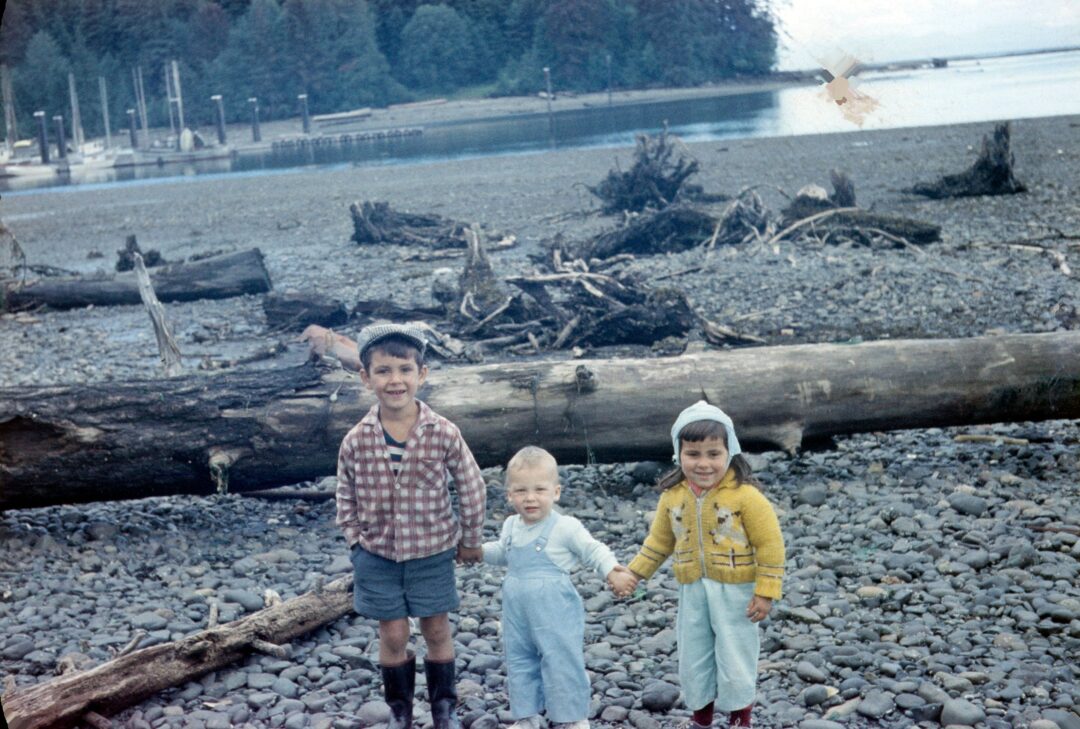
Drouin believes in the importance of allowing children the freedom to explore and connect with their surrounding environment. “Let your kids off the leash,” he advises, advocating for more time spent in nature for younger generations.
“One of the great aspects of my early childhood was fishing with my dad – from the very earliest, he told me that as soon as I could walk, he would take me out to his little rowboat.”
Michel Drouin, BC-based author
He fondly recalls spending time out on the water with his father. “One of the great aspects of my early childhood was fishing with my dad – from the very earliest, he told me that as soon as I could walk, he would take me out to his little rowboat,” he says. The cover of the book features young Drouin, about age four, seated in his father’s fishing boat, looking overjoyed.
As Drouin grew older, he started getting involved in the local forestry industry alongside his father. He remembers them going out together to the logging camp, working with his father on the log booms when he was just twelve. “Not that I was being paid, but I kind of learned some of the moves there,” he recounts. “I grew up walking on logs. I can walk on logs just as good as I could walk on dry land.”
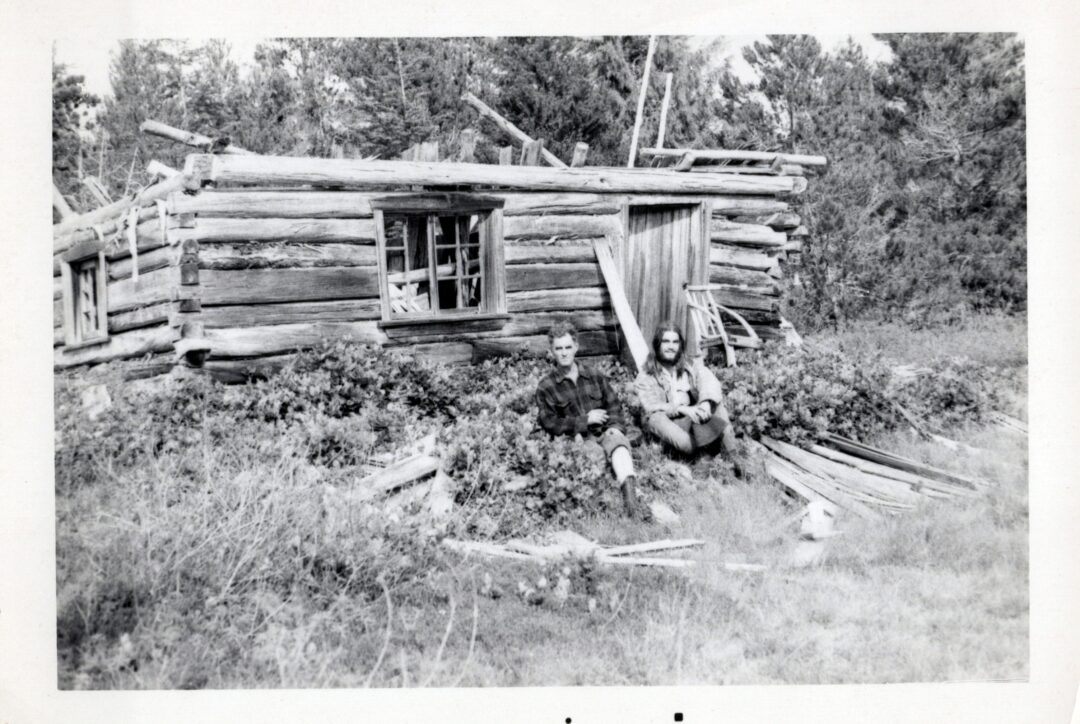
Reflecting on the changes that have shaped Port Hardy since his youth, Drouin acknowledges the town’s evolution from a quiet outpost to a bustling town of 7500, fueled by growing industries like mining and fishing. “There was massive construction – there were hotels that went up, shopping centres, apartment buildings and family houses. It was a big boom,” he says, though noting it didn’t last. Drouin himself did not stick around. He turned eighteen and moved away to travel and see the world.
“I just want people to remember the history – how life on the coast was simpler. People went to work and tried to save a little money and maybe build a better house. I guess I just wanted to be a recorder of those days before it gets forgotten.”
Michel Drouin, BC-based author
“We’re just merchants of nostalgia right now,” he says playfully. “I just want people to remember the history – how life on the coast was simpler. People went to work and tried to save a little money and maybe build a better house. I guess I just wanted to be a recorder of those days before it gets forgotten,” he explains.
Past the End of the Road is a fascinating document of mid-century coastal communities and Drouin’s own adventurous West Coast childhood. You can order the book through Harbour Publishing or your local independent bookstore. If you’re in Port Hardy, be sure to attend one of his upcoming readings at the Port Hardy Library on Wednesday, May 15 at 6 PM, at the Port Hardy Senior Citizens’ Society building during the senior’s lunch on May 16 at 11 AM, ot at The Book Nook at Café Guido on May 16 at 3 PM.




